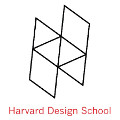Networked Urbanism
design thinking initiatives for a better urban life
apps awareness bahrain bike climate culture Death design digital donations economy education energy extreme Extreme climate funerals georeference GSD Harvard interaction Krystelle mapping market middle east mobility Network networkedurbanism nurra nurraempathy placemaking Public public space resources Responsivedesign social social market Space time time management ucjc visitor void waste water Ziyi

GSD Harvard – Fall 2014
SOCIO-ENVIRONMENTALLY RESPONSIVE DESIGN
This course considers the complexity of the human ecosystem and the interpenetration of natural and artificial elements that are embedded within it. People, nature, and the built environments we have constructed all influence one another in a complex system of reciprocal interaction. Human ingenuity in developing techniques to improve climatic comfort has allowed us to inhabit extreme climate zones, where artificial conditions impose over the natural ones. Adaptation strategies have evolved from the adoption of clothing and the construction of simple shelters to the complex arrangements and technologies that facilitate physical survival and large-scale settlement in cities today.
In this studio course we will focus on the atmospheric conditions of the contemporary city and how they affect the use of public space. Using the city of Manama (Bahrain) as a case study, we will explore the potential of responsive design, where nature and artifice could establish a creative dialogue, to design new environments that can improve social life. We will travel to Manama and analyze the issues affecting the use of public space in this unique cultural and climatic region. During the semester students will design solutions and prototype their ideas. Participants are encouraged to develop strategies within a wide range of scales between public space and industrial design.
Socio-Environmental Responsive Design Reference by networkedurbanism
Carolina and I tried to focus on the “Humidity” in Bahrain and design a system for the public spaces to generate water from the humid air, and then the cooler air can be used to create an artificial flow of wind. The curated experience is to strenghten the feeling of “humid” in Bahrain.
« Previous 1 2 3 4 Next »